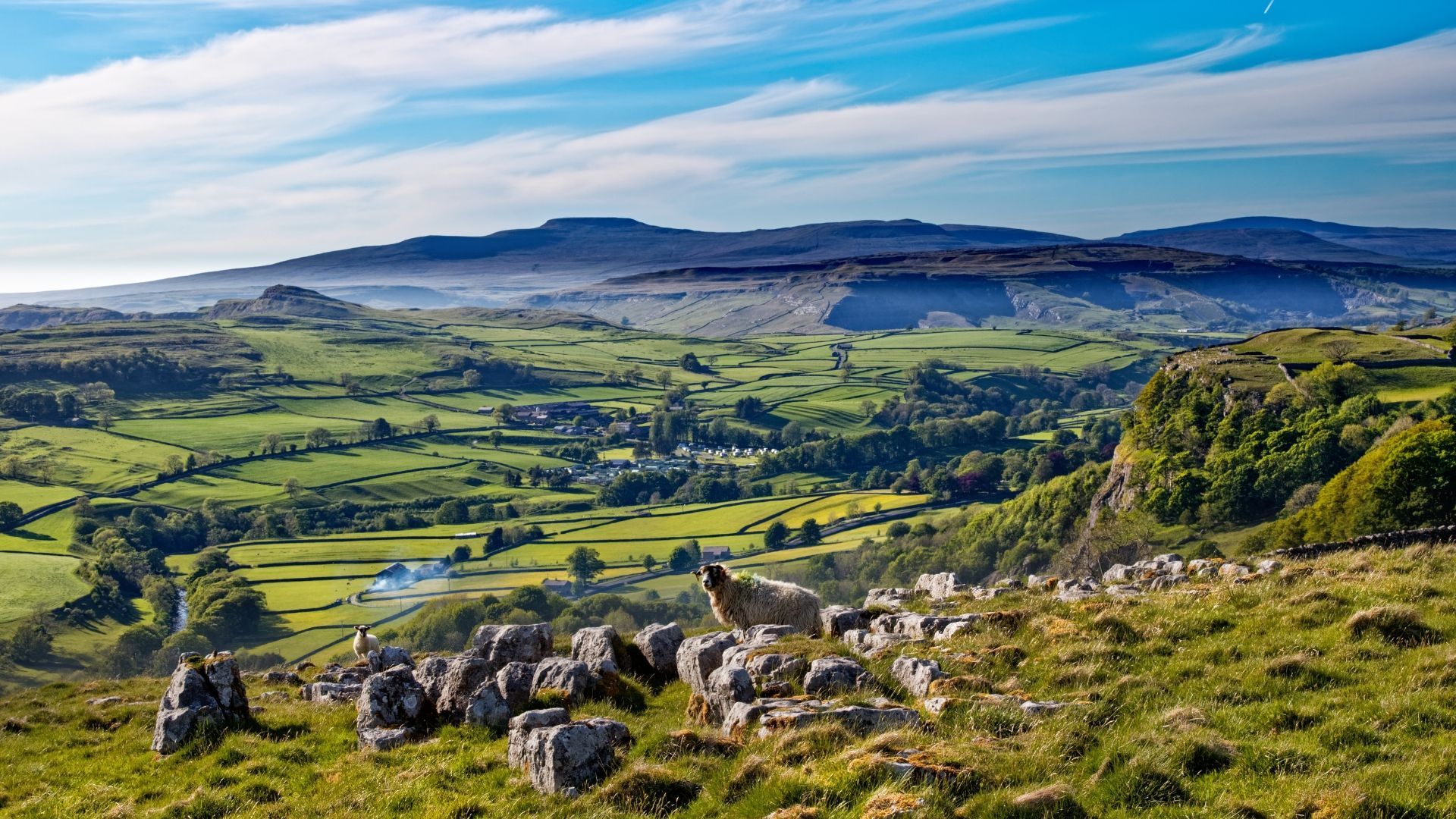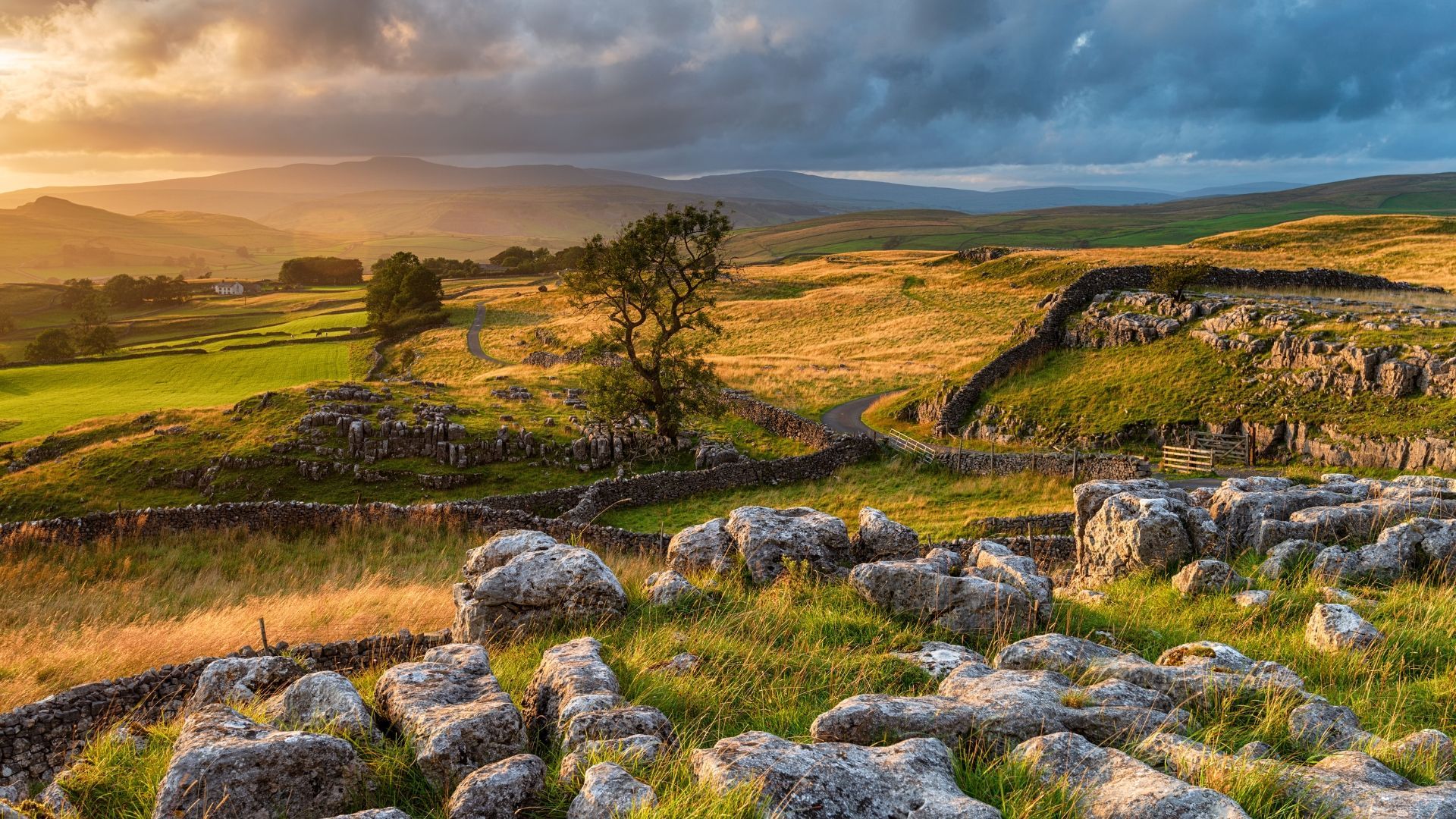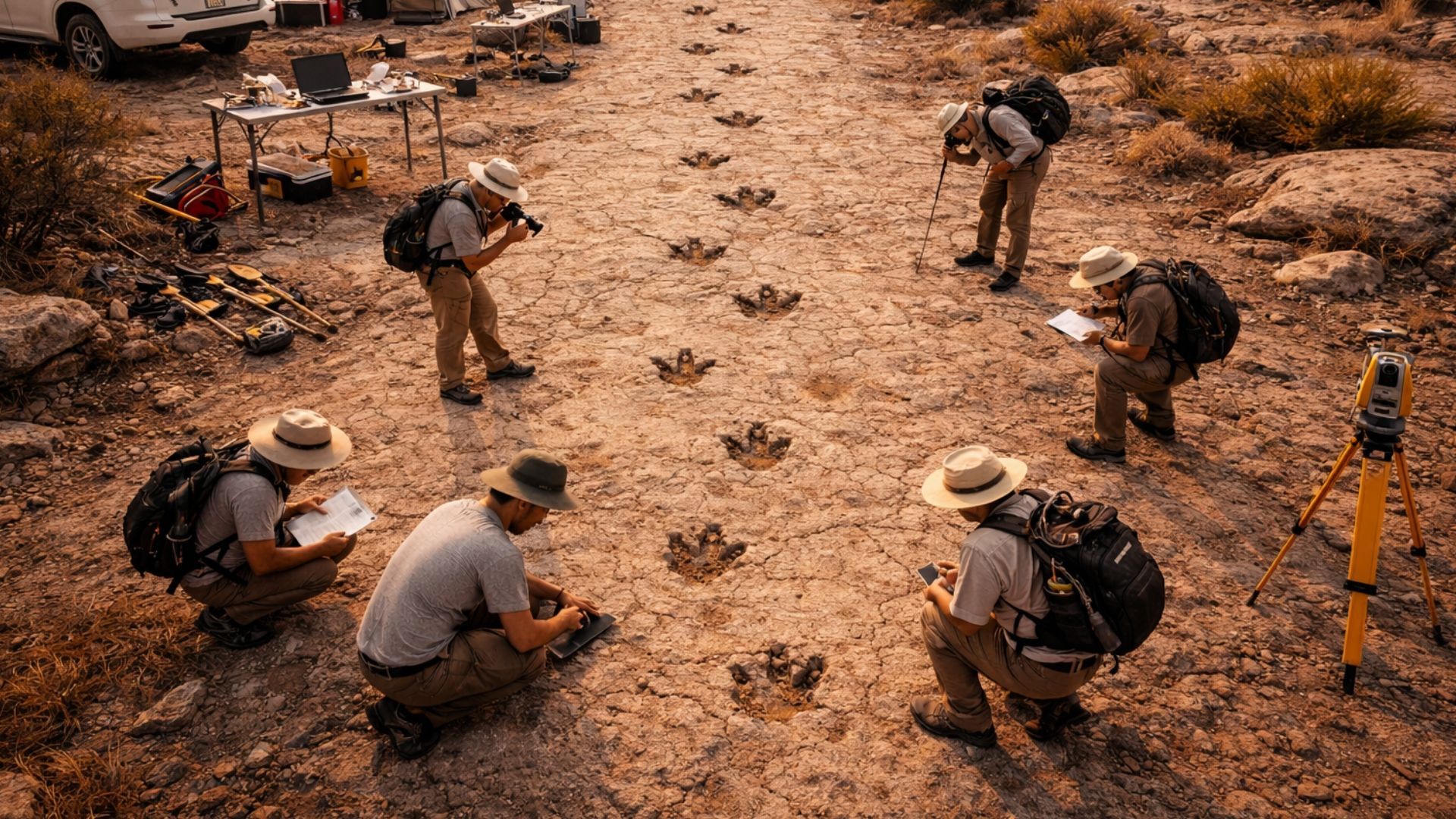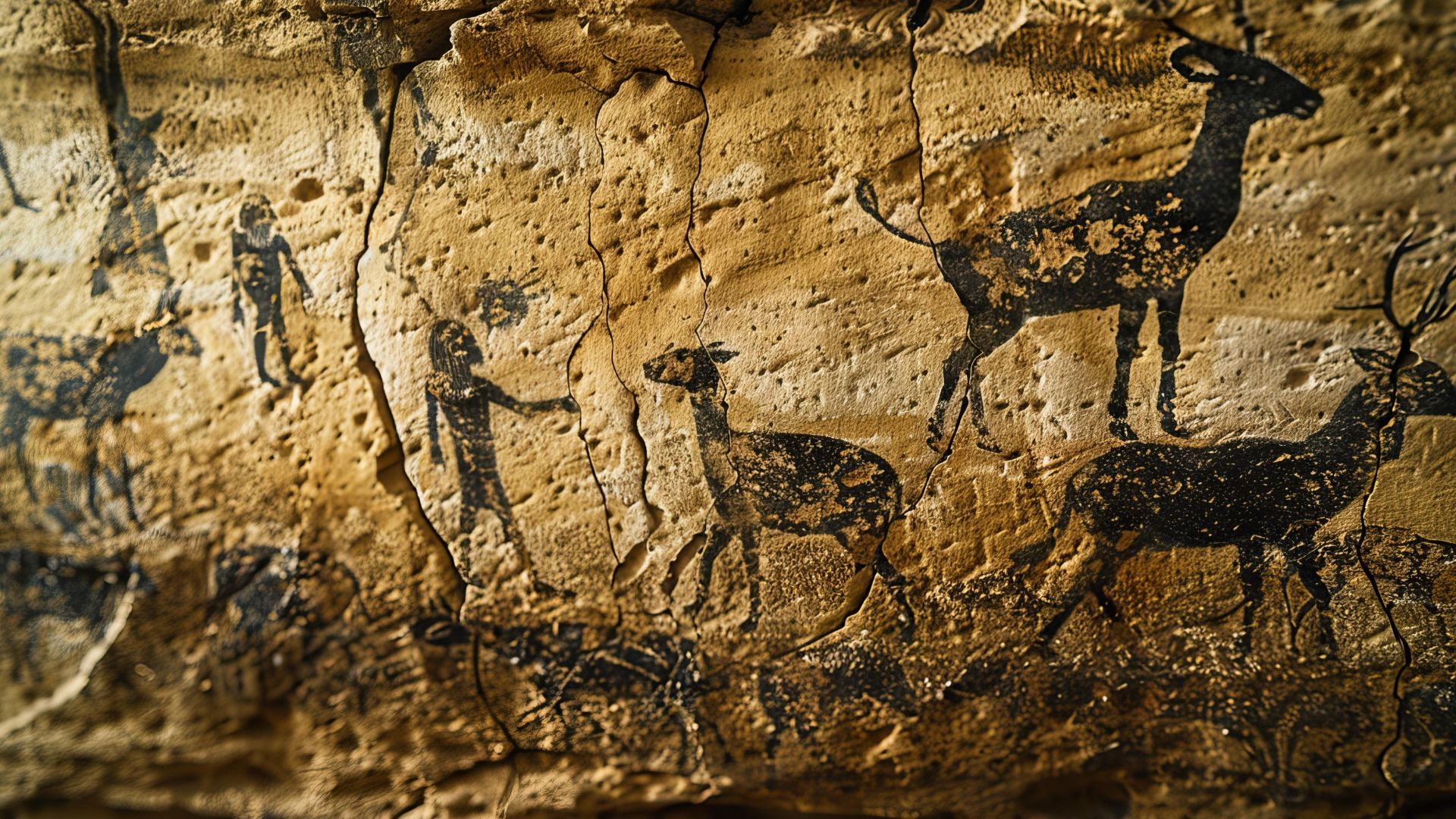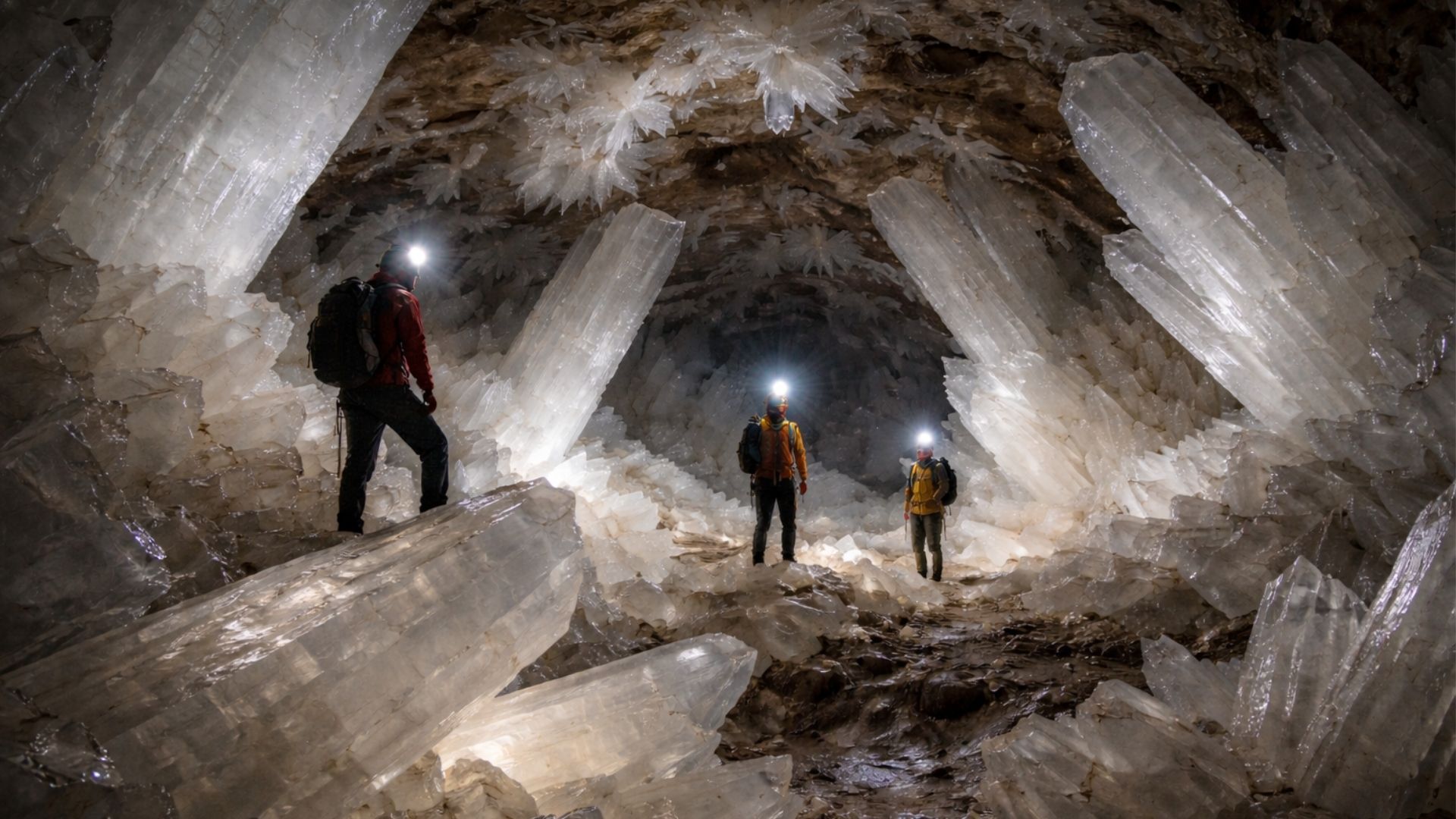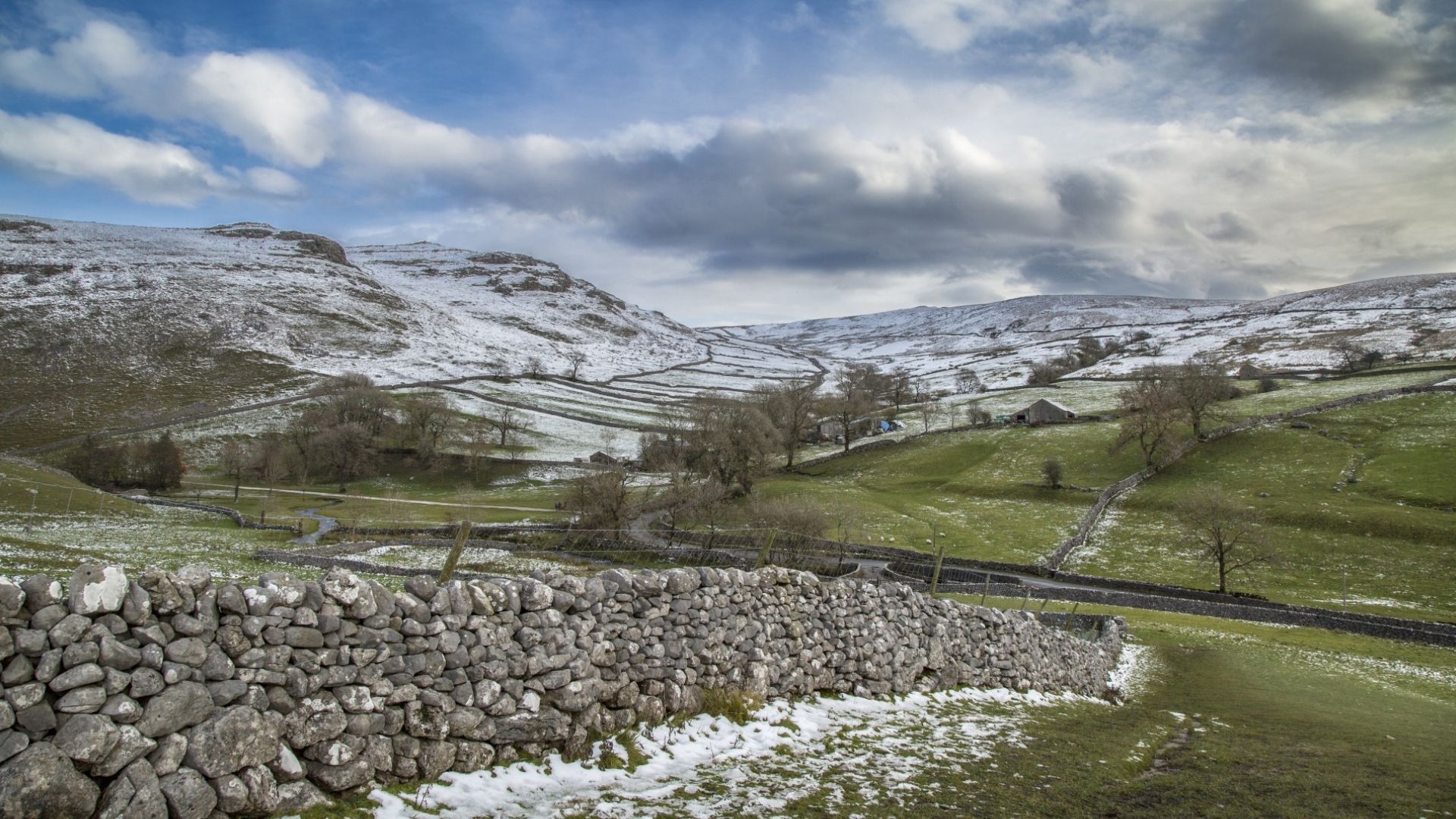Learn about the secrets of Heaven and Hell, 2 areas found in the extensive Stump Cross cave system.
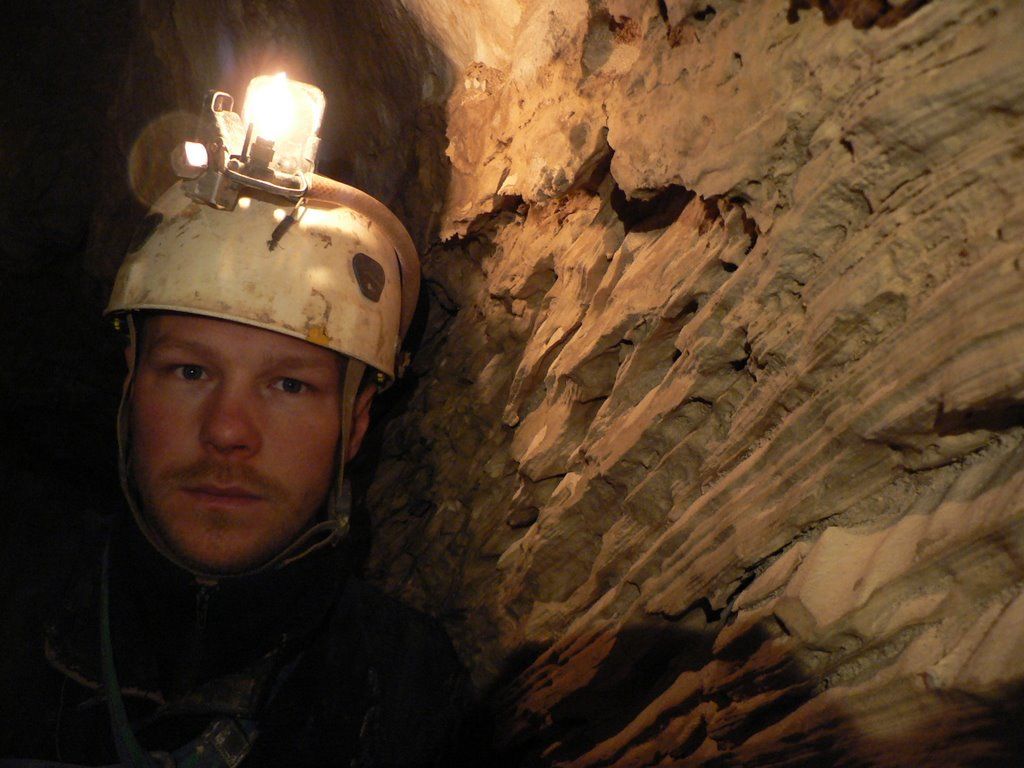
Descend into an eerie corner of Stump Cross Caverns and you'll find the otherworldly beauty of Heaven and the terrifying depths of Hell.
Well, not literally. "Heaven" and "Hell" are two fascinating areas that lie beyond the limits of our show cave.
Get your caving gear on – it's time to explore the history of these hidden passageways, starting from the very beginning.
The discovery of Stump Cross Caverns
In 1860, two local brothers, Mark and William Newbould, were digging for valuable lead that was known to be found nearby.
Suddenly, one of their spades went straight through the roof of a natural tunnel. Intrigued, they carefully made their way through and found themselves inside a passageway filled with wondrous stalagmites and stalactites.
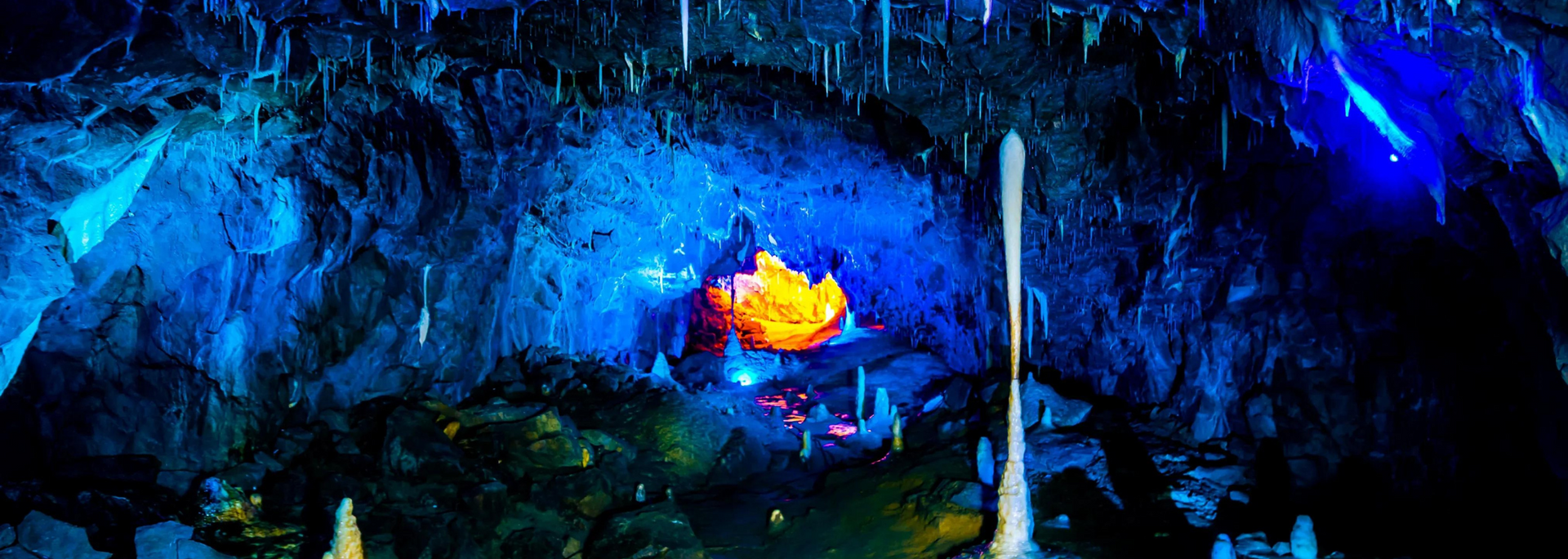
Fascinated by the ethereal splendour of this exquisite grotto, but disappointed by the distinct lack of lead inside, they put on their thinking caps.
They knew of other caves that had recently become hugely successful tourist destinations. Spotting an opportunity, they negotiated with local landowner Thomas Yorke to open the site to the public.
A shrewd businessman, Yorke would charge one shilling per visit and would insist visitors change into cave-friendly clothing in his inn across the way.
Further explorations by the Craven Pothole Club
Ever since the show cave opened, explorers would search the Greenhow Hill area in the hope of finding more caves. One such group of intrepid cave explorers, the Craven Pothole Club, decided to concentrate its efforts around Stump Cross Caverns in the 1940s.
An account by Len Cook describes how he, Bill Rose, and a team of four others started by surveying the show cave. Soon, they wanted to survey the whole system, convinced there was a whole network of chambers and passageways that remained unexplored.
On a bright summer morning in 1949, Len Cook and his team decided to take advantage of the warm, dry weather and explore more of Stump Cross.
Previous attempts had revealed that the passages by the far upper stream were impenetrable – and far too wet to gain access. However, they did know of one passage that they hadn't yet tried to enter. See, the former owner of Stump Cross Caverns, George Gill, had left his crowbar there some 20 years previous.
So, they lugged their equipment, including a theodolite (an angle-measuring instrument), walking staffs, food and climbing tackle. A high-spirited team who loved to mix business with pleasure, they enjoyed a three-course meal followed by coffee next to the fresh flowing water. Once finished, they proceeded to squeeze themselves into the narrow, dingy passageway.
They spent nine long hours crawling and climbing through the muddy, dark and damp cavities inside. Finding nothing but tight, claustrophobic spaces – and beginning to regret their decadent breakfast – the group started to lose heart.
A breakthrough at the chimney
Just as they were getting ready to leave the unpleasant and gloomy passage, Bill Rose suddenly realised he was directly underneath a natural chimney in the rock.
Just about managing to shift his body around, he began to climb up the cramped opening. Above him was a tiny rift in the pillar – and through the gap he could feel a cool breeze.
Placing his ear next to the opening, he heard the faint whistling of air. Could this lead to a new, undiscovered cavern?
When the team regrouped outside the tunnel, Bill told the others about his discovery. He convinced them that removing the barrier might reveal something interesting behind it.
The disheartened spelunkers, tired and wet, were sceptical – but Len was intrigued.
The team spent the following week attempting to remove the rock flake at the top of the chimney. Armed only with torches and chisels, they slowly chipped away at the boulder, one team member at a time.
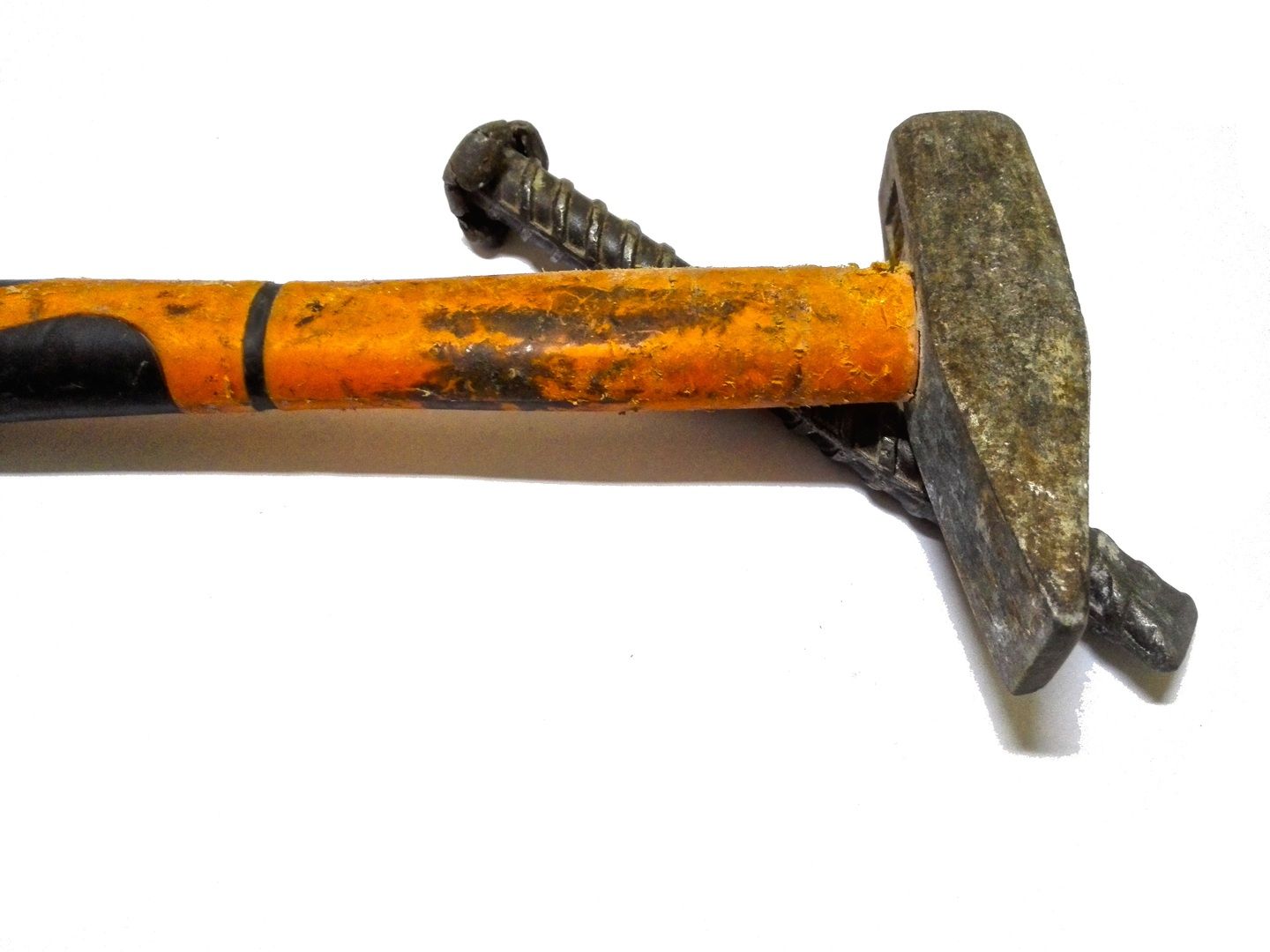
After seven difficult days, they had made a small but significant dent on the side of the obstacle. Then, all of a sudden, the creak and groan of shifting rubble echoed throughout the passageway.
The team desperately scrambled away as rocks piled towards the ground with a horrific crack. Dust and debris flooded the passage. One of the team, now clutching his head and with his legs curled deep into his chest, had narrowly avoided being crushed by the falling slab.
Heaven
Inside the opening was a small chamber, with a roof that was mainly collapsed. The most obvious route out of the chamber was blocked, but a second route – after a six-foot drop – led to a roomy passage with a sandy doorway.
Beyond that was a stunning new cave, lined with a resplendent curtain and breath-taking corkscrew stalactites, stalagmites and anemolites (mineral deposits). The intricate and beautiful rock formations found here led the group to later name this section of the cave "Heaven".
Beyond the celestial beauty of Heaven was a mass of boulders that proved difficult to scramble through. Following this was The Miner's Chamber, so-called because the timber, rubbish and pick marks scattered about the cave suggested that miners had already made their way into this section.
Still traumatised by their brush with death – and with their time in the caves at an end – most of the team left for home after this brief exploration. Only Len and Bill remained. Ever hungry for adventure, they decided to go underground once more.
Hell
The pair decided to try a different route this time and investigate the many side-turnings of the newly discovered cave.
Finding a new passage on the right, the two descended into what they realised must be the drainage system of the cave, through a tunnel they named "Cook's Pot". The rocks in this area had become razor sharp and the corridors were unbearably tight. Before long, Len yelped "This is Hell!"
The name stuck.
After navigating the potholes, low ceilings and twisting, jagged passages of Hell for a little longer, they returned to the surface. Over the next few weeks, they would take several others to explore Heaven and Hell with them, including George Gill, the owner of the caves.
Further journeys into Heaven and Hell weren't easy.
On one trip, they found that the Hell section of the cave had completely flooded. On another expedition, they discovered the Rat Trap: a hole that led to treacherous water and silt-filled passages. They soon discovered they couldn't get out. Without the help of friend and fellow explorer, Jack Freeman, who rescued them with a rope, they might still be there today…
In 1957, members of the British Speleological Association began more digging and extended these passages. Heaven is still being studied today – but only the hardiest of cavers dare to explore the dangerous depths of Hell.
Stump Cross Caverns is an extensive cave system that's perfect for a
family day out near Harrogate. To discover its stunning rock formations and twisting passageways for yourself,
book your visit today.


